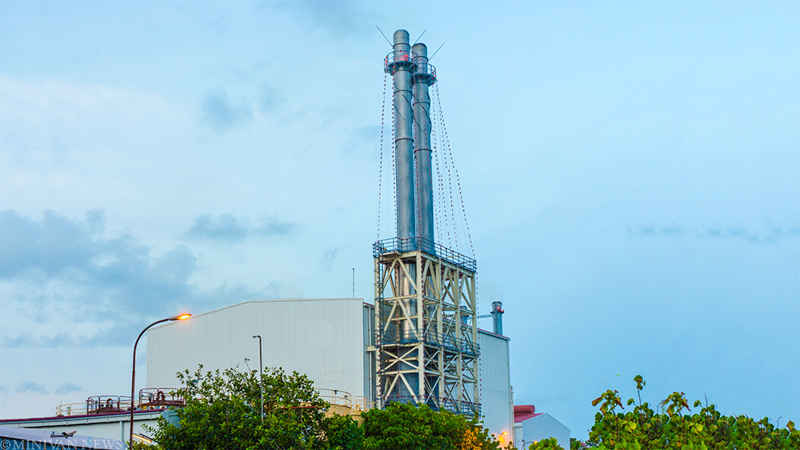The state utility Fenaka Corporation has blamed arsonists for a fire at its offices in Addu City on Saturday.
A group of people poured kerosene and set fire to an area adjacent to the Fenaka sub station, which houses a transformer in Addu City. The fire was an attempt to disrupt electricity services in the area, the company said in a statement yesterday.
The station’s doors were damaged in the fire.
“We believe this was an attempt to damage the transformer at the station. If the transformer had been damaged there would have been difficulties in providing electricity to residents in the area as well as Muhyiddeen School,” the company said in a statement.
“We appeal [to the public] not to commit acts that may damage important service infrastructure for the sake of obtaining certain benefits.”
The police said no arrests have been made yet.
The fire comes two weeks after a group of people threw rocks and shattered windows at the home of Fenaka’s regional director Abdulla Zuhair.
A retail shop owner in Addu City Inaz Mohamed said the fire at the Fenaka sub station and the attack on Zubair’s house may be a result of “desperation” due to an unresolved dispute over electricity prices between the power company and local businesses.
Addu City businesses have been protesting since April over what they called a sudden hike in electricity prices.
In March, Fenaka increased prices in Addu and cut electricity subsides in other atolls in a bid to save MVR11 million (US$713,359) per month from the state budget.
Power bills have increased by 30 percent, shop owner Inaz Mohamed Didi said.
Inaz said businessmen in Addu had lodged separate petitions with government offices, the parliament and the courts. “But no one in this government is listening to us.”
He said he does not know who was responsible for the attacks and said businessmen in Addu do not encourage violence and have always prioritised dialogue.
Businessmen across the country closed their shops in protest in April. But the company said its hands were tied as it was only implementing government policies.
Fenaka is the main electricity provider in the atolls and operates in 151 of the 188 inhabited islands of the Maldives.
Addu City deputy mayor Abdulla Thoyyib meanwhile expressed concern over differences in electricity prices, noting that charges in Addu City and Fuvahmulah are up to 37 per cent higher than in capital Malé.
Higher electricity prices reduce investment in the southernmost city, he said.
In early May, Fenaka cut off electricity to several businesses, including a private hospital, when owners refused to pay bills.
Four businesses lodged a complaint with a magistrate court over power cuts. The court initially issued a stay order, but a new judge appointed to oversee the case overturned the ruling and said Fenaka was authorised to cut electricity if businesses fail to pay bills.
Presenting the 2015 budget in parliament, the government said it would target electricity subsidies to the poor.
But businesses and the opposition say the government failed to inform the public of the change in prices.
